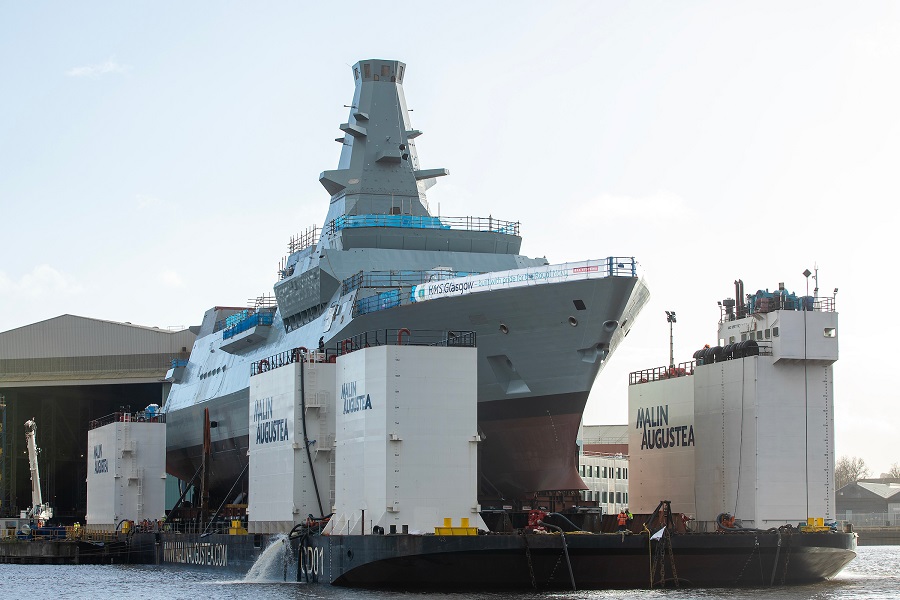Norway has chosen the United Kingdom as its strategic partner for the acquisition of Type 26 frigates, in what is the largest defence procurement in Norway’s history and the UK’s biggest ever warship export deal by value. The £10 billion programme will see at least five Norwegian vessels built to the same specifications as eight Royal Navy ships, with deliveries to Norway beginning in 2030.
‘Norway and the United Kingdom are close allies, with common interests and strong bilateral ties. I am confident that the strategic partnership with the UK for purchasing, developing and operating frigates is the right decision. This partnership enables Norway to reach the strategic objectives our Parliament set out in the current Long-Term Plan on Defence,’ said Prime Minister Jonas Gahr Støre.
The combined fleet of 13 Anti-Submarine Warfare frigates will significantly reinforce NATO’s northern flank, with both navies operating seamlessly in Northern Europe. ‘Together we will acquire frigates to the British Royal Navy and the Royal Norwegian Navy. We will operate and develop the frigates for the coming decades. This will strengthen our and NATO’s ability to patrol and protect the maritime areas in the High North. This is of great importance to Norwegian, British and allied security in these times of global instability,’ Støre added.
The deal will generate major industrial benefits for both countries. In the UK, the agreement is expected to sustain 4,000 jobs until the 2030s, including more than 2,000 at BAE Systems’ Glasgow shipyards. According to the UK Government, the programme will support 432 companies across the supply chain, including 222 small and medium enterprises.
Prime Minister Keir Starmer welcomed the agreement, saying: ‘This £10 billion deal is what our Plan for Change is about – creating jobs, driving growth and protecting national security for working people. This Government has forged new partnerships across the world to deliver for people at home and the export of our world leading Type 26 frigates to Norway will do exactly that, supporting well-paid jobs up and down the United Kingdom, from apprentices to engineers.’
The Norwegian Government confirmed that the Storting had been consulted through the expanded Committee on Foreign Affairs and Defence, following a pledge to secure a strategic partner swiftly. ‘Selecting the United Kingdom as a strategic partner for frigates was also recommended by the Chief of Defence. The choice represents a historic strengthening of the defence cooperation between our two countries,’ said Støre.
Norwegian Defence Minister Tore O. Sandvik highlighted the operational benefits of identical fleets. ‘We have strong shared interests in the North Atlantic. Our Armed Forces maintains a close cooperation, and with a joint frigate program, we will be able to operate seamlessly and integrated in our joint areas of interest,’ he said. ‘Having identical vessels will enable us to operate even more efficiently together on challenging missions. It will also reduce costs and make joint maintenance easier. Additionally, it opens up the possibility for us to perform joint training of personnel, and perhaps even use Norwegian and British crew interchangeably. This is something we will look into further within the framework of the strategic partnership.’
Defence Secretary John Healey emphasised the strategic significance of the agreement. ‘For over 75 years, Britain and Norway have stood together on NATO’s northern and north-eastern frontiers, keeping the UK and Europe safe. This historic defence deal deepens our strategic partnership. With Norway, we will train, operate, deter, and – if necessary – fight together. Our navies will work as one, leading the way in NATO, with this deal putting more world-class warships in the North Atlantic to hunt Russian submarines, protect our critical infrastructure, and keep both our nations secure,’ he said.
The programme will also involve extensive industrial cooperation in Norway, with commitments for contracts equivalent to the value of the acquisition. ‘This is positive for Norwegian industry and Norwegian jobs. The industry will play a vital role especially in maintaining and keeping the vessels up to date. We have identified a wide range of industrial and technological areas of cooperation where Norwegian industry can compete for contracts,’ said Støre.
Charles Woodburn, Chief Executive of BAE Systems, described the decision as a vote of confidence in British shipbuilding. ‘The Norwegian Government’s decision reflects its confidence in British industry’s ability to deliver a superior anti-submarine warfare platform, together with systems and equipment, that will support its future maritime security and reinforce its position within NATO,’ he said.
The Type 26 frigates are designed primarily for anti-submarine warfare, featuring advanced sensors, sophisticated weapons and flexible communications systems. The Norwegian vessels will be equipped with helicopters with anti-submarine capability, though the specific type is yet to be decided. ‘At the same time, it is important that we consider the rapid technological developments, and explore the possibilities for utilizing unmanned platforms. This is something we will look further into together with British partners,’ said Sandvik.
The UK and Norwegian governments will now finalise a binding intergovernmental agreement before negotiations with BAE Systems on delivery schedules and pricing begin. ‘Our first goal is to finalize the Government agreement shortly. Then we will move into contract negotiations. We will negotiate, among other things, the price and delivery schedule for the vessels, before returning to the Parliament with an investment decision,’ said Sandvik.



